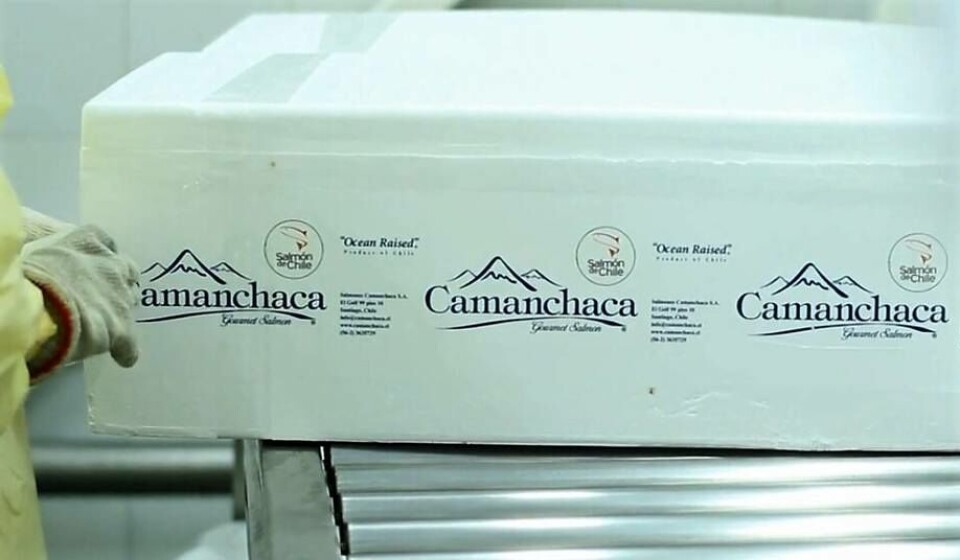
Chilean salmon farmer links loan cost to sustainability
Chilean salmon farmer Salmones Camanchaca has signed a new deal linking the interest it pays on loans to measurable sustainability targets.
The amount of interest paid on the US $135 million revolving credit facility from DNB Bank, Rabobank and Banco Santander is based on the Libor (London interbank offered rate) plus an applicable variable margin, which can fluctuate between 2.25% and 3.7% per annum.
The margin will also be based on compliance with sustainability targets established in the agreement, which include five independently certified annual indicators:
- the gradual reduction of greenhouse gases – carbon neutrality and a 40% reduction in emissions.
- the percentage of Aquaculture Stewardship Council certified biomass, which must exceed 61%.
- the amount of marine ingredients used in diets per kilo of salmon produced will fall below 0.6.
- the proportion of non-hazardous solid waste that has been recycled must exceed 60%.
- the employee accident rate must fall to 2, down 25%.
Five basis points
Salmones Camanchaca’s chief executive, Manuel Arriagada, said that achievement of the sustainability objectives will allow it to reduce its financial costs by up to five basis points and contribute to its salmon farming sustainability goals.
A basis point is one hundredth of a percent or equivalently one percent of one percent, so a reduction of five basis points would allow Camanchaca to reduce the amount of interest it is paying on top of Libor from, for example, 3.7% to 3.65%.
Camanchaca said the deal is the first sustainable credit facility of its kind in the Chilean salmon industry, although other Chilean farmers such as Blumar and Ventisqueros have already received so-called “green credits”, which also come with a series of environmental and social sustainability commitments.

“We proactively went to our creditor banks, not only to request and negotiate a much longer refinancing than we had, but also to put into it a set of ambitious sustainability commitments and objectives as a clear demonstration of our vocation for sustainable salmon farming,” said Camanchaca vice-president Ricardo Garcia. “This is part of our sustainability model, which we have promoted since 2019, so that we are not a passive spectator in the face of the challenges of the planet and Chile, and this even extends to financial management.”
Sustainability-linked bond
Green financing is becoming a preferred option in the seafood industry. In July, seafood giant Thai Union issued a THB 5 billion (£111 million) seven-year senior, unsecured Sustainability-Linked Bond (SLB) for institutional investors that carries an interest rate of 2.47%. Investors in the bond will be entitled to a lower or higher coupon should the company achieve or fail to achieve a series of sustainability performance targets in 2023 and 2026.
Norwegian salmon farming heavyweights Mowi, Grieg, Lerøy and SalMar have all raised capital through so-called green bonds, which come with less specific conditions attached. Cash raised with green bonds is used for new and existing projects with environmental benefits in line with the voluntary Green Bond Principles published in June 2018 by the International Capital Market Association (ICMA).























































